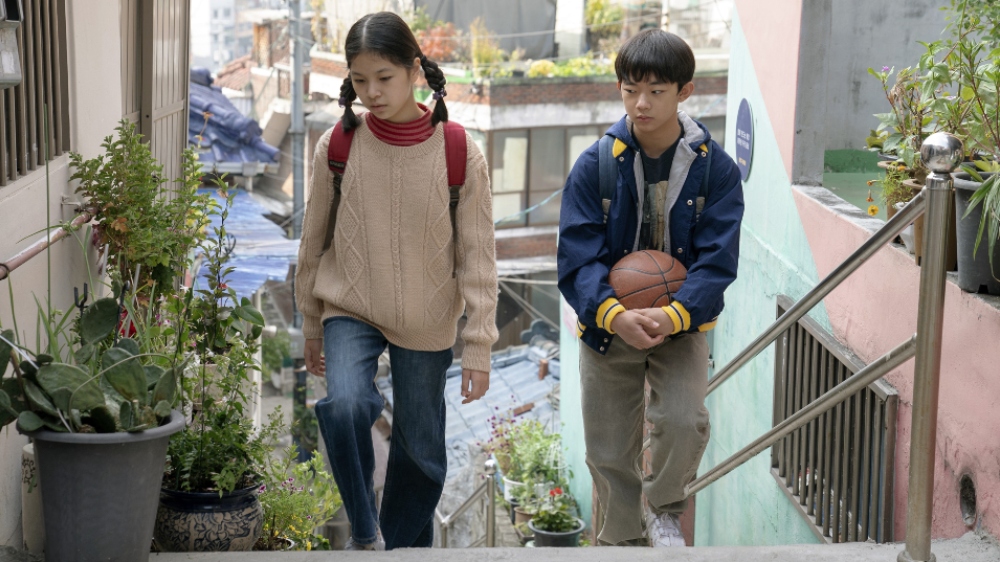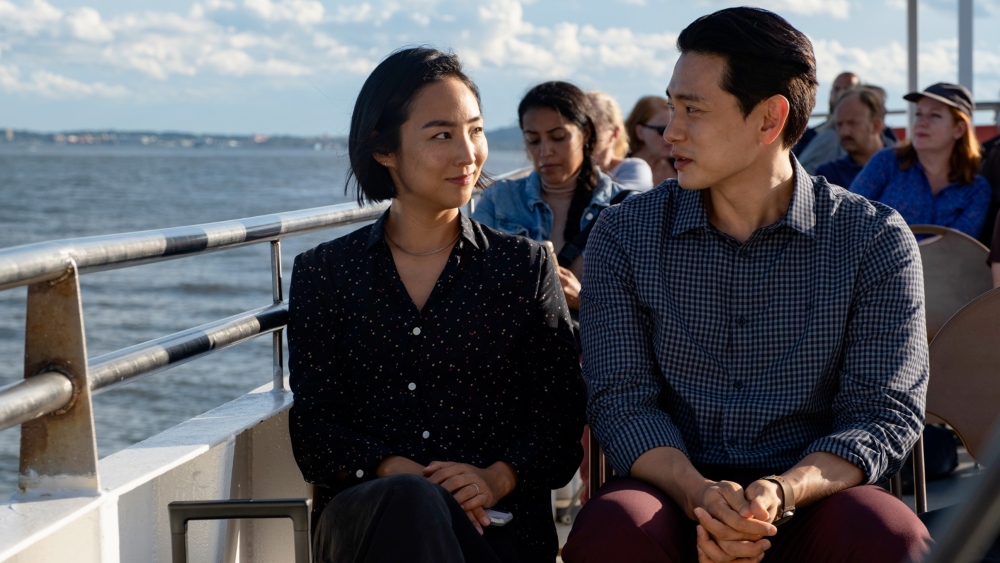A uniquely Korean concept of destiny, 인연 (in-yeon) refers to a bond between two people that is simply meant to be — one that is spiritually predestined, no matter how fleeting or transitory it may seem. In Korean culture, even relationships that last an instant could be revealing of one’s metaphysical path, the act of brushing past another body on a crowded city street indicating the presence of an invisible thread connecting lives across ages.
Those with deep in-yeon, it is said, have met not once but millions of times before, the arcs of their countless lives separating and converging in ways large and small. Soulmates, in a sense, might have known each other before as lovers or sworn enemies, as families held together or strangers met in passing, as trees growing side-by-side or water droplets comprising a river.
Past Lives, to which the concept of in-yeon is central, is a sublime and wistfully romantic story about the bonds between people, and it is a film precisely attuned to the intricacies of those bonds, how they are formed by time and distance as much as emotion and belief, and how they are never resolved but continually woven, becoming parts of ourselves that we can sense without seeing.
As childhood sweethearts, Na Young (Seung Ah Moon) and Hae Sung (Seung Min Yim) understand none of this; their courtship has scarcely begun with chaperoned “dates” in the park when Na Young’s parents announce plans to emigrate from South Korea to Canada. Hae Sung doesn’t say a word as he walks Na Young home from school, leaving her where their paths diverge. But in one stroke of brilliance by writer-director Celine Song, Past Lives leaps gently forward in time, ensuring we never lose sight of either character and quietly insisting upon a connection — if not love, then surely in-yeon — that endures between the two.

12 years later, Na Young (played as an adult by Greta Lee) is an aspiring playwright in New York and now goes by the English name Nora, while Hae Sung (Teo Yoo) is an engineering student in South Korea, where he is completing his mandatory military service. After Nora notices Hae Sung searching for her on Facebook, she decides to reach back out to him. Before long, the two are in constant communication via Skype, discussing one another’s daily lives as the question of what should happen if they reunite in person hangs in the air unanswered — until, inevitably, it cannot be avoided, and the pair part ways once more.
Another 12 years pass before Hae Sung makes plans to visit New York City, where Nora still lives. But things change, as they tend to, and Nora is now married to Arthur (John Magaro), a writer. Their relationship is not without faults, but they love each other and live together. They have shared experiences and made memories, and the existence they have carved out for themselves is a happy one. Once Nora and Hae Sung reconnect, and as she shows him around the city, they reflect upon their own history and the shared destiny they once foresaw, but also reckon with the quiet revelations that have sprung from the separate lives they’ve lived since.
It wouldn’t be accurate to describe Past Lives as a love story, at least not entirely. Making her feature directorial debut, Song smartly emphasizes the distance separating Nora and Hae Sung in each of the film’s time-marked chapters, whether depicting the physically and psychologically isolating nature of online connection or keeping her characters framed apart from one another even when they finally reconnect in person. (The moment when they do finally hold each other in the same shot is breathtaking in its emotional honesty, not only for the catharsis it provides but for the suddenness with which we sense the other forms of space still between them.)
Though Nora is well-versed in in-yeon and even tells Arthur about the concept when they first meet, in a house unfamiliar to both of them and under a canopy of stars, this is not a film about love as some all-consuming, cosmic force. Song is interested in exploring patient, abiding kinds of connection — sources of steady nourishment rather than eruptions of passion. What’s electric about her characters connecting on screen is the essential fact of it, the reality of a relationship shifting from the emotionally true to the physically present; the filmmaker kept her actors apart during production until the scenes where their characters met in person for the first time, and the result is a shared chemistry that feels authentically spontaneous and profound.

An acclaimed Korean-Canadian-American playwright who drew inspiration from her own experiences to craft this story, Song relates it beautifully but without artifice. This is a most extraordinary feature debut, shimmering with wisdom and emotion, made in a naturalistic style that nevertheless displays a certain mastery of filmmaking craft. Her unobtrusive and understated script is gently observant, and all the more swooningly poetic for this. Evoking the emotional inner lives of her characters, the ebbs and flows of feeling that define them, through blocking and sound design, Song’s filmmaking consistently finds honest ways to illuminate her story’s universal themes — a fitting display of authorial control for a story about the choices we make, the choices that make us, and the fluid constant of one’s self as a balance between the two.
Without sacrificing its slender sense of flow, Past Lives is especially astute in articulating all the forces — culture, language, time, fate, love, and connection — that overlap to form the possibilities of her characters’ lives. The performances of Lee, Yoo, and Magaro, as well, fill these in across a series of surprising and delicately handled scenes that collectively reveal as much the limits of their characters’ insights as their tightly held philosophies of love. “You dream in a language I can’t understand,” Arthur tells Nora one night, not admonishing her for speaking Korean in her sleep but acknowledging that some intimate part of the person he has married remains outside his reach. Love, this film advises us, requires a certain abnegation of the self, generous acceptance of another, and a willingness to coexist in lieu of total knowledge. Such truths are ever-present in Past Lives beneath all its pleasant and unassuming surfaces.
And so it makes a kind of sense that the story moves not toward a climax but toward a conversation in a bar in the East Village where Nora brings both Arthur and Hae Sung together. Seeing her seated between these two men with whom she shares such history, such depth of feeling, it’s immediately striking that their worlds never would have collided were it not for Nora, and were it not for the reciprocity of their feelings for her. As Arthur and Hae Sung earnestly seek to see one another more completely, with Nora translating for them, both men inevitably reach a point at which the conversation must shift in another direction, away from their understanding. That they agree to this quietly and without frustration is one of Past Lives‘ most subtle and moving moments. Their acceptance — of the lives they’ve had and the ones they’ve imagined, and of the present moment as a time predicted on both — blossoms like a spring flower, as beautiful and delicate as everything else about what will surely be remembered as one of the year’s very best films.
Grade: A
Past Lives premiered at the 2023 Sundance Film Festival and is now playing in select theaters nationwide courtesy of A24.



